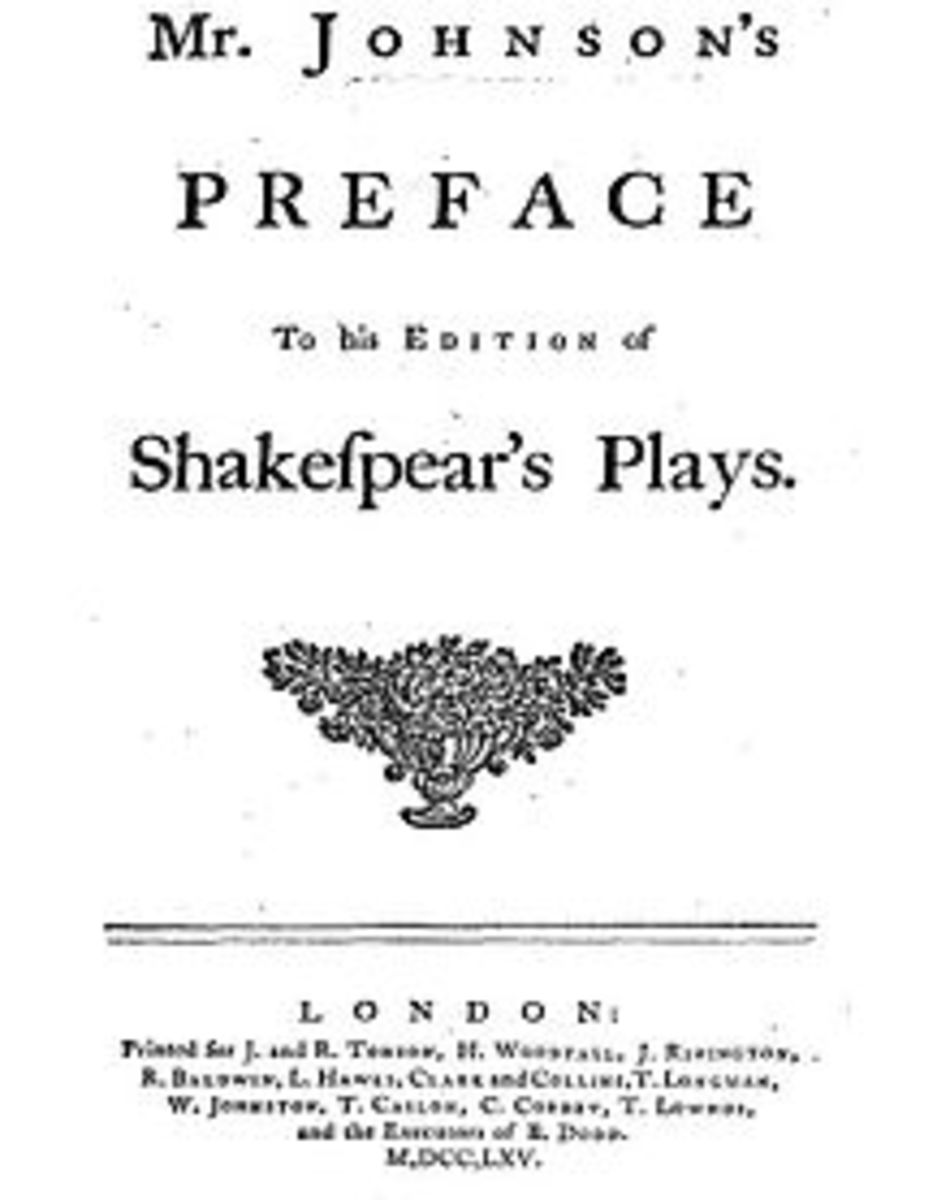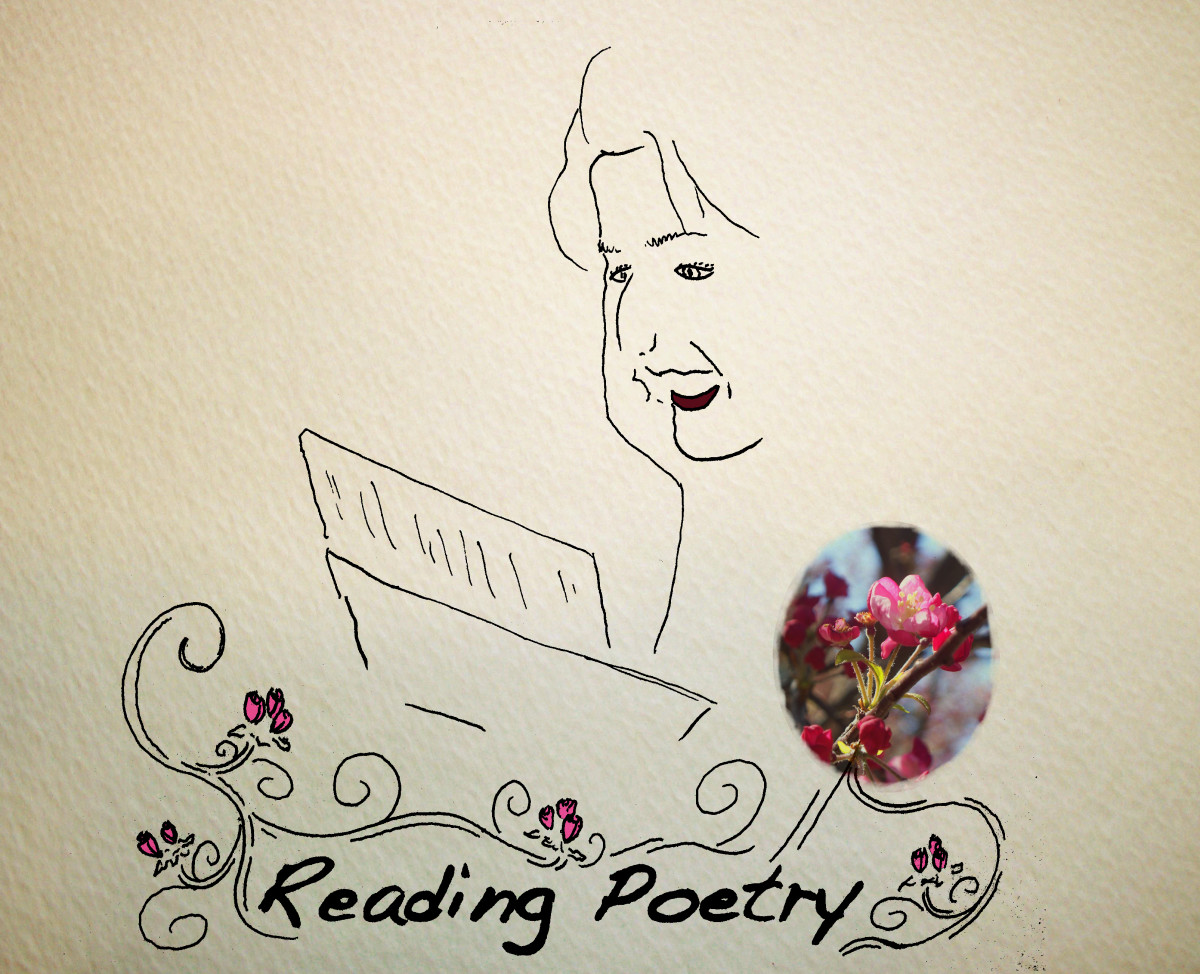UNDERSTANDING LITERATURE

How to Read Shakespeare's Plays like a Pro!
FIVE STEPS TO UNDERSTANDING SHAKESPEAREAN LANGUAGE
by
Dan Tricarico
Readers often assume that the plays of William Shakespeare were meant to be dusty relics exhibited under muted track lighting in quiet museums, read only by scholars in tweed jackets with elbow patches who arrogantly mutter, “yes, yes,” to themselves while puffing on their pipes. Nothing could be further from the truth. Shakespeare wrote for the masses and, if he were writing today, would probably be cranking out episodes of Desperate Housewives or Law and Order. And yet, since language changes over time, readers of today need a few tools to fully navigate the beauty of Shakespeare’s language. Here are a few simple steps you can use to more fully appreciate your next reading of Julius Caesar or King Lear.
Read to the end of thought, not just to the end of the line. All of Shakespeare’s plays were written as giant poems; consequently, the line breaks are not always at the end of a complete thought. Therefore, one of the most important ways to improve your understanding of Shakespeare’s plays is to remember to read to the end of the thought, not just to the end of the line. If you stop at the end of the line, it may not always make sense. Try locating the end punctuation--period, exclamation point, or question mark--and see if reading all the way to the punctuation mark increases your understanding. Chances are, it will.
If you’re unsure of what something means, take a wild guess. English is a dynamic language, and Shakespeare is dead. Unfortunately, then, it is impossible for us to ask him what he meant by certain words, phrases, or expressions. So our guess is as good as anyone’s. With Shakespeare, even being in the ballpark of his meaning is good enough for an understanding and enjoyment of his art. And one of the great things about reading Shakespeare is that every time you read one of his plays, you are guaranteed to pull out a little more meaning from his words.
Furthermore, if you encounter tricky vocabulary, ask yourself if there are words you already know that might be close to what he’s saying. In his famous Sonnet 18 ("Shall I Compre Thee to a Summer's Day"), for example, The Bard uses the word “temperate” to describe his girlfriend’s disposition. If we are not immediately familiar with that word in regard to someone’s personality, we might consider that we know the words “temperature,” and “temper.” In addition, if we consider that the metaphor he is using compares his paramour to the heat of a summer’s day, we might arrive at an understanding that “temperate” has something to do with climate and heat. Consequently, we can guess that he’s saying that his love has a mild, even-tempered, and overall pleasant personality. And consider this: we gathered all of that meaning without even cracking open a dictionary!
How would we say it? Consider Shakespeare’s sentence structure, and reconfigure it in the way we might say it today. For example, in Shakespeare’s famous Sonnet 116, Shakespeare begins, “Let me not. . .” How would we say it today? Naturally, we would say, “Don’t let me. . .” Sometimes Will’s funky use of sentence structure impedes our comprehension, so if we can just give the sentence construction a modern tweak, it can unlock meaning for us as readers.
It’s totally okay if you don’t “get” everything. One of the most common excuses students of Shakespeare have for giving up is that they don’t “get it.” You know what? It’s all right if you don’t “get” everything Shakespeare says. Even those people who have read Romeo and Juliet or Hamlet twenty-five or thirty times will still encounter entire sections they will read and re-read and still come away scratching their heads and saying, “I don’t know. You got me.”
As long as you can follow the basic plotline, understand who the characters are and what they are doing to themselves and each other, and are periodically able to enjoy the beauty and art of the language, you are ahead of the game. Any teacher, scholar, or supposed “expert” who tells you that he or she understands everything that Shakespeare is saying is, quite simply, fibbing.
Explore other media. Chances are you have little or no training as a professional actor. And since plays were written with the expressed intent of being performed, merely seeing them on the page is often not enough to glean their meaning. Consider, then, the benefits of reading Shakespeare’s language out loud, listening an audiotape, or watching a filmed version of the play to increase your understanding. Performance elements like tone, inflection, emotion, and attitude can significantly improve our understanding of Shakespeare’s meaning. At the very least, don’t be afraid to use the footnotes provided in the text or, as a supplement, consider reading a modern language translation. You may not get the full effect of the beauty of Shakespeare’s language, but at least you will do better on your instructor’s quiz.
William Shakespeare is arguably one of the greatest writers in the English language. He managed to capture elements of human nature and expressed them in an artful way that has endured for over five hundred years. What a shame, then, if we let our insecurities about reading his words inhibit us from experiencing the great joy, wisdom, and universality of his art.









